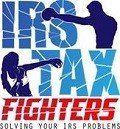2. Offer in Compromise (OIC)
An Offer in Compromise is an agreement between you and the IRS that allows you to settle your tax debt for less than the full amount owed. It’s designed for people who can’t pay their debt in full and can demonstrate they’ve been through financial hardship.
● How It Works: You submit a proposal to the IRS outlining how much you can afford to pay and why you believe this amount should be accepted as a full settlement. The IRS will then review your documentation and financial situation to determine if your offer is reasonable.
● Pros: If accepted, you’ll pay less than what you owe, and the debt will be resolved. This option can significantly reduce your tax liability.
● Cons: The process can be lengthy and complicated, and not all offers are accepted. Additionally, you’ll need to meet strict eligibility requirements, and there’s a non-refundable application fee.
3. Currently Not Collectible (CNC) Status
If you’re experiencing severe financial hardship and can’t make any payments toward your tax debt, you might qualify for Currently Not Collectible status. This status temporarily halts IRS collection actions.
● How It Works: You provide documentation to the IRS showing that you’re unable to pay your debt due to financial difficulties. The IRS will review your situation and may place your account in CNC status, which means they won’t pursue collection actions against you while you’re unable to pay.
● Pros: This option provides temporary relief from IRS collection actions, such as wage garnishments and bank levies.
● Cons: Interest and penalties will still continue to accrue, and the IRS may keep a close watch on your financial situation to determine if your status should be continued or changed.
4. Penalty Abatement
If you’ve been hit with penalties for late payments or non-filing, you might be able to request a penalty abatement. This means you can ask the IRS to reduce or remove your penalties based on reasonable cause.
● How It Works: You must demonstrate to the IRS that your failure to pay or file on time was due to circumstances beyond your control, such as a serious illness or natural disaster. If the IRS finds your reasons valid, they may reduce or eliminate the penalties.
● Pros: Reducing or removing penalties can lower your overall tax liability.
● Cons: You’ll still be responsible for paying the original tax debt and any accrued interest.
Tips for Successfully Negotiating with the IRS
1. Gather Your Financial Information: Before negotiating with the IRS, make sure you have a crystal clear understanding of your financial situation, including documentation to back up your income, expenses, and all of your assets. This will help you present a realistic proposal.
2. Be Honest and Accurate: Provide accurate information to the IRS to avoid complications. Misrepresenting yourself or the facts can lead to delays, rejections, or even additional penalties.
3. Consider Professional Help: Tax relief professionals like the ones at IRS Tax Fighters are a valuable resource and can assist you in negotiating with the IRS. They have experience in handling tax debt and can help walk you through every step of the complicated process.
4. Stay in Communication: If you’ve entered into an agreement with the IRS, keep up with your payment schedule and communicate if you encounter any issues. Maintaining a positive relationship with the IRS can only help prevent further complications.
5. Review Your Options Regularly: Your financial situation may change over time, so it’s important to keep up to date with your tax relief options and adjust your strategy as needed.
If you’re struggling with tax debt and need help negotiating with the IRS, reach out to
IRS Tax Fighters. We will assess your situation, help you choose the best resolution option, and work on your behalf to achieve the best possible outcome.
Remember, addressing tax debt sooner rather than later can help you avoid additional penalties and interest and provide you with a clearer path to financial stability. If you’re ready to explore your options for settling tax debts with the IRS,
contact our team today
for a free, no-obligation consultation.


